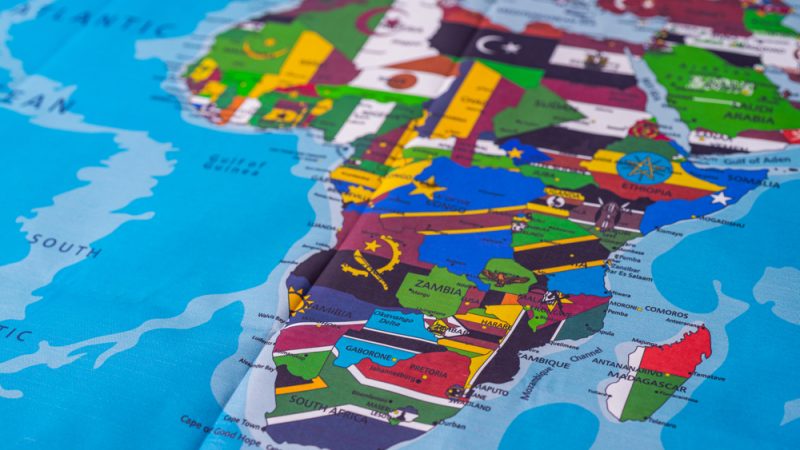
Yvette Cooper’s first weeks as Foreign Secretary have been a baptism of fire. An Israeli strike in Doha triggering a regional crisis; Russian drones violating NATO airspace; and the fallout from Lord Mandelson’s dismissal as Ambassador to Washington. These are serious challenges — and more will inevitably follow.
READ MORE: ‘Is feminism “back” at the Foreign Office?’
But foreign policy is not just about managing crises; it is also about identifying opportunities and acting on them. One of the UK’s greatest strategic openings in the decade ahead lies in deepening and modernising our partnership with Africa — a priority previously recognised by former Foreign Secretary David Lammy and Minister for Africa, Lord Collins.
A Moment to Set the Agenda
The Government’s forthcoming UK–Africa Approach offers the perfect vehicle to seize that opportunity. Ministers have pledged a strategy that promotes sustainable growth, tackles insecurity, confronts the climate crisis, and builds on the deep people-to-people links that already connect us.
However, this will only make an impact if delivered with urgency, clarity, and ambition. A cautious, minimalist document would leave Britain standing still while other nations — from France to China; Turkey to India — move decisively ahead.
As Chair of the Labour African Network (LAN), I have welcomed the government’s renewed tone of partnership and engagement. And we stand ready to help the government in this work. In our meetings with African diplomats, businesses, trade unions and civil society, we hear a consistent message: treat African partners with respect, show up consistently, and match words with real investment — in trade, security cooperation, and climate action.
There is genuine appetite for a more equal and mature UK–Africa relationship. But credibility depends on follow-through.
Look Beyond the “Usual Suspects”
British engagement with Africa must expand beyond the traditional trio of Nigeria, Kenya and South Africa.
Take Côte d’Ivoire. Since the end of its civil conflict in 2011, it has sustained growth above 6% a year, driven by infrastructure investment and a growing industrial base. Political challenges remain — but that is precisely where UK partnerships on skills, green industry and inclusive governance can make a lasting difference.
The Sahel and Sudan are more complex theatres. Islamist groups there exploit weak governance and the stresses of climate change. A smart UK strategy would combine diplomatic leverage, targeted security cooperation and investment in climate resilience — particularly in the fragile border economies whose stability underpins the wider region.
Subscribe here to our daily newsletter roundup of Labour news, analysis and comment– and follow us on Bluesky, WhatsApp, X and Facebook.
Then there is the Democratic Republic of the Congo (DRC) — too often seen purely through a humanitarian lens. The DRC produces three-quarters of the world’s mined cobalt and is Africa’s leading copper producer, making it indispensable to the clean energy transition. Its vast Congo Basin rainforest and peatlands are also vital to global climate stability. UK partnerships on responsible sourcing and forest protection would combine our climate leadership with African priorities.
Trade, Investment and the AfCFTA
If shared prosperity is the goal, the African Continental Free Trade Area (AfCFTA) must sit at the heart of the UK’s approach.
The UK should support work on customs modernisation, product standards, digital trade, skills development and SME finance — practical cooperation that creates jobs in both Accra and Aberdeen. Our new trade posture must help build African value chains, not simply boost British exports.
Get the Basics Right
For the Foreign, Commonwealth and Development Office (FCDO), several disciplines are essential:
Stay present. Consistent ministerial engagement counts. We welcome the appointment of Baroness Chapman as Minister for Africa but worry that a single Africa and Development portfolio may be an overstretch; continuity of leadership will be key.
Align tools. Diplomacy, development, trade and security must pull in the same strategic direction.
Back African leadership. Work through the African Union Commission under H.E. Mahmoud Ali Youssouf and through regional organisations to strengthen African-led solutions.
Protect credibility. When crises erupt — from Doha to eastern DRC — the UK must respond swiftly, uphold international law, and coordinate closely with partners.
Seize the Initiative
The world has noticed Britain’s turbulence. Yet this is also a moment to reset and reimagine our global role. Africa will account for a growing share of the world’s population, workforce and consumer base. Choices made today — on investment, energy, digitalisation, health, security and education — will shape both Africa’s development and the next generation of British jobs.
Share your thoughts. Contribute on this story or tell your own by writing to our Editor. The best letters every week will be published on the site. Find out how to get your letter published.
Yvette Cooper has the opportunity to both manage the crises in her red box while driving a confident, forward-looking Africa agenda that reflects Britain’s values and advances its long-term interests.
-
- SHARE: If you have anything to share that we should be looking into or publishing about this story – or any other topic involving Labour– contact us (strictly anonymously if you wish) at [email protected].
- SUBSCRIBE: Sign up to LabourList’s morning email here for the best briefing on everything Labour, every weekday morning.
- DONATE: If you value our work, please chip in a few pounds a week and become one of our supporters, helping sustain and expand our coverage.
- PARTNER: If you or your organisation might be interested in partnering with us on sponsored events or projects, email [email protected].
- ADVERTISE: If your organisation would like to advertise or run sponsored pieces on LabourList‘s daily newsletter or website, contact our exclusive ad partners Total Politics at [email protected].




More from LabourList
Restoration announce recommendations for NEC candidates
‘Factionalism at the top is weakening Labour – and handing a gift to Reform’
‘Europe must stand strong on its own as US security guarantees grow conditional’